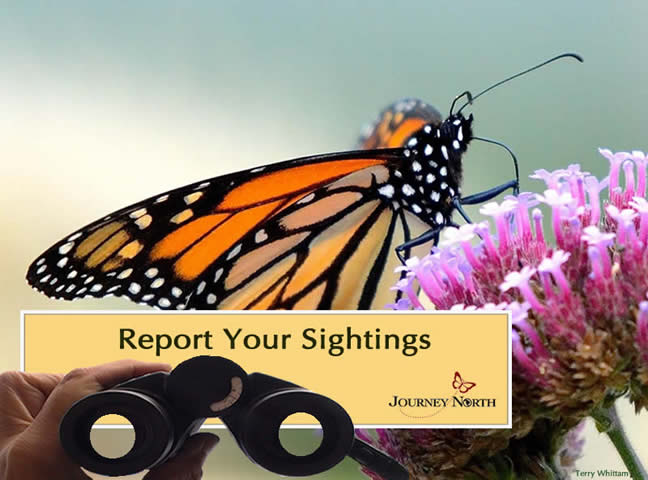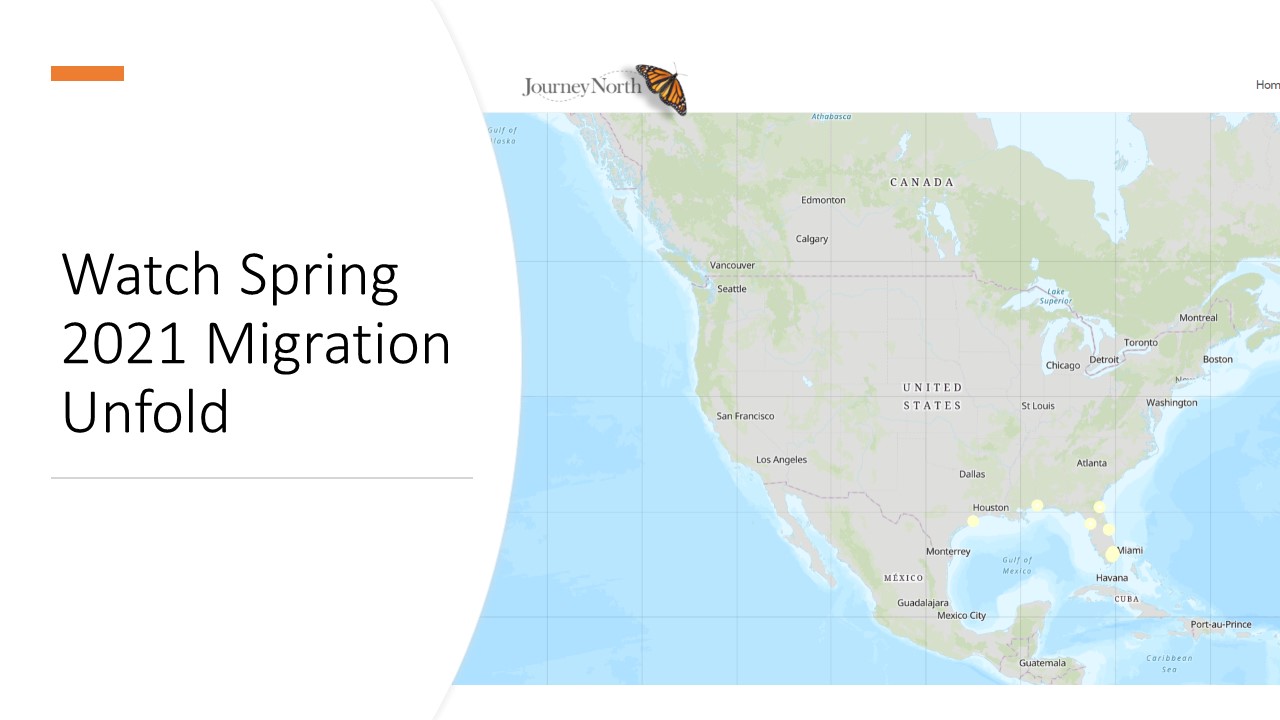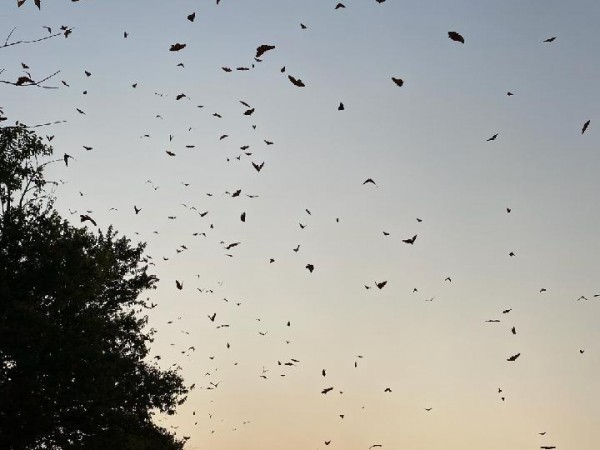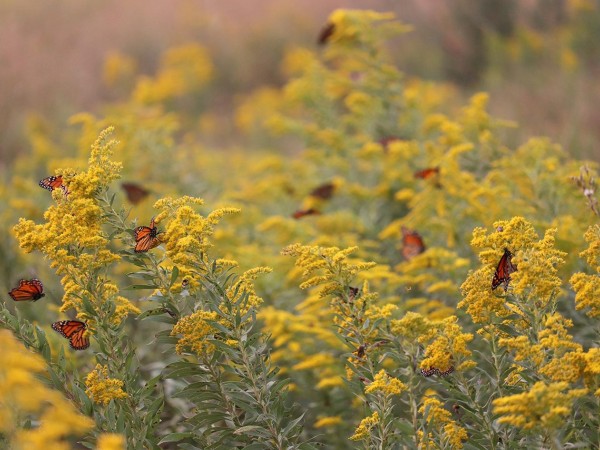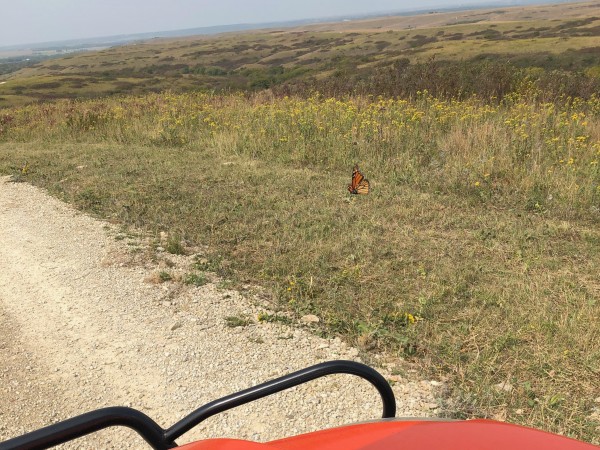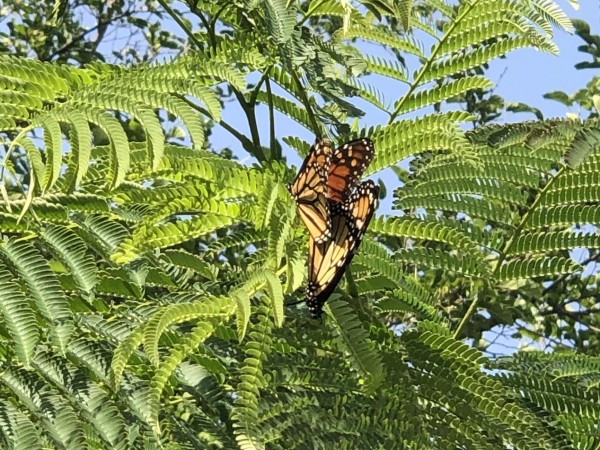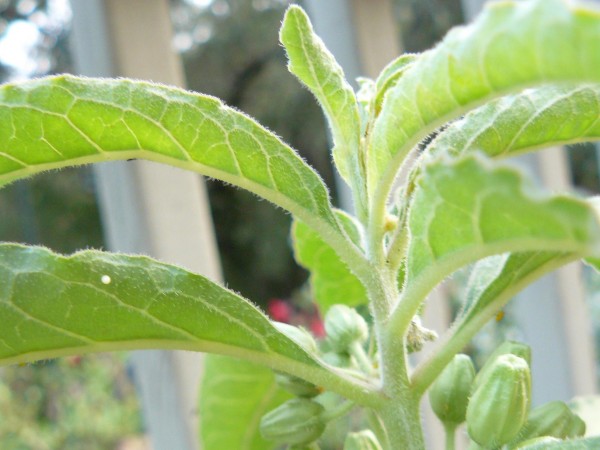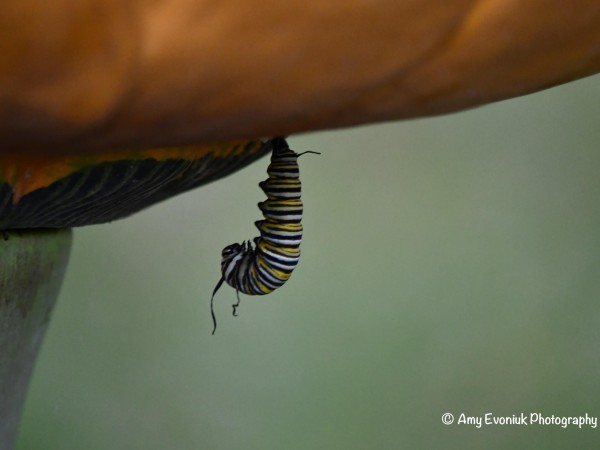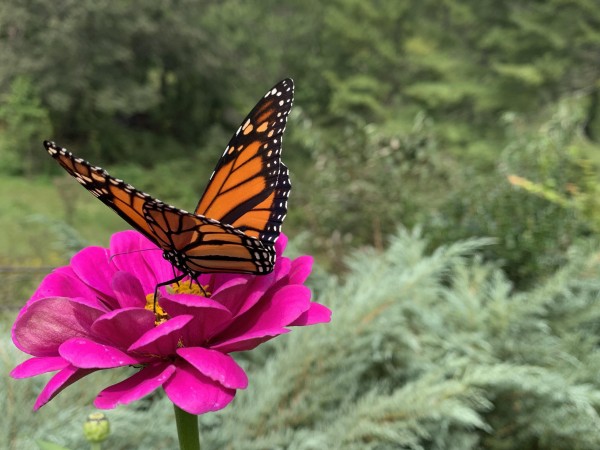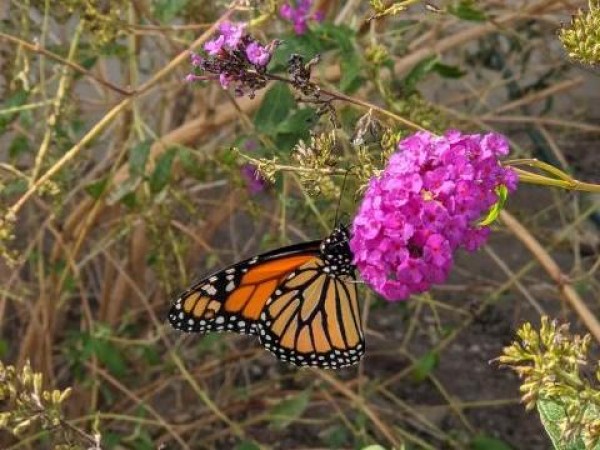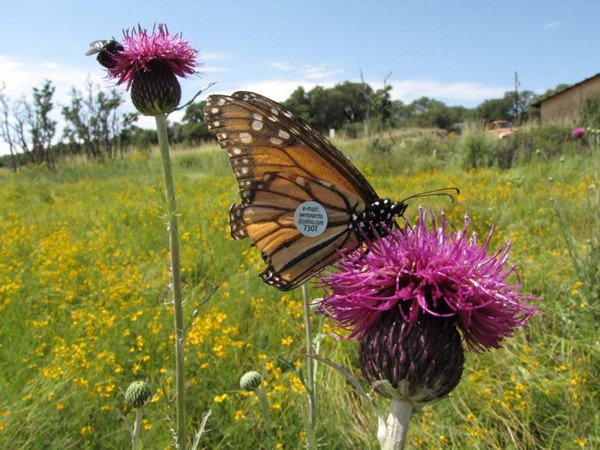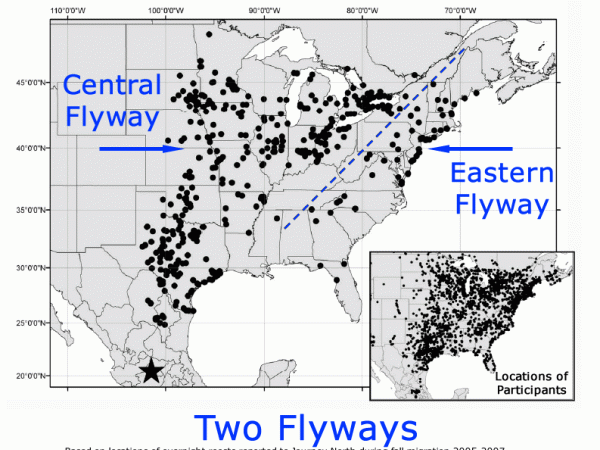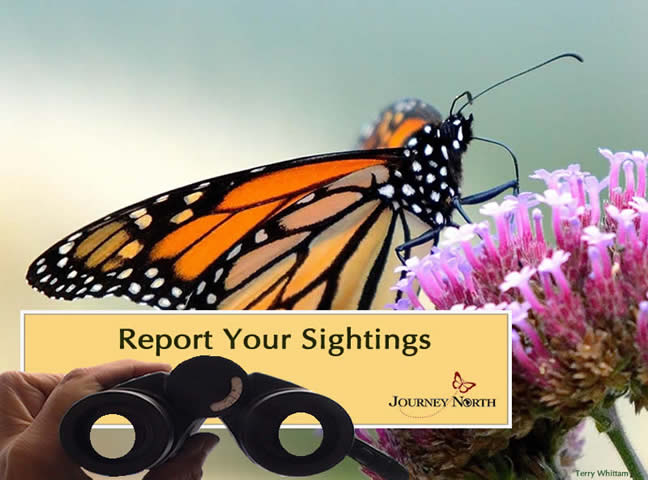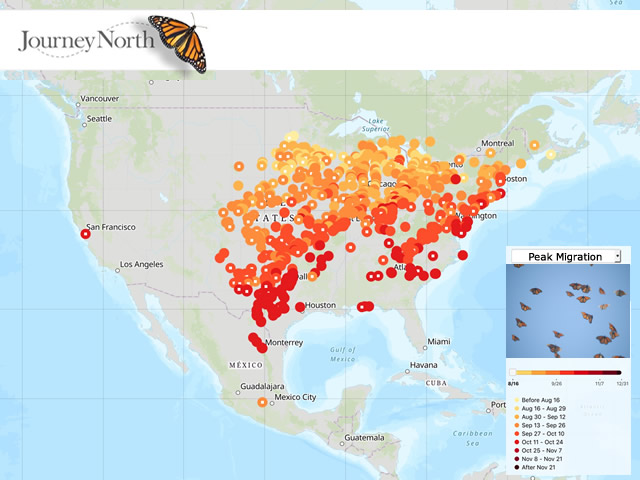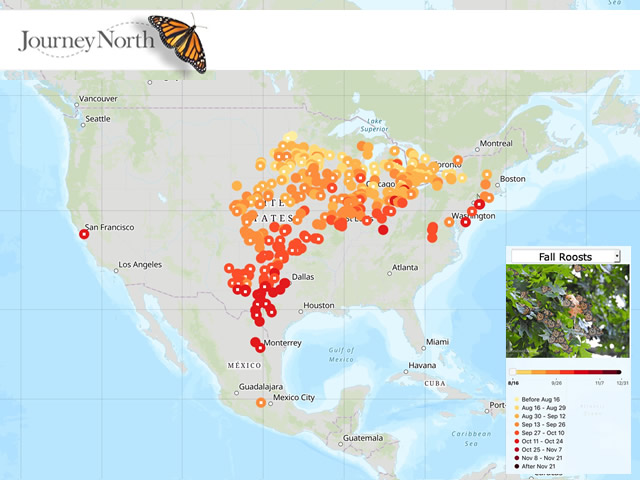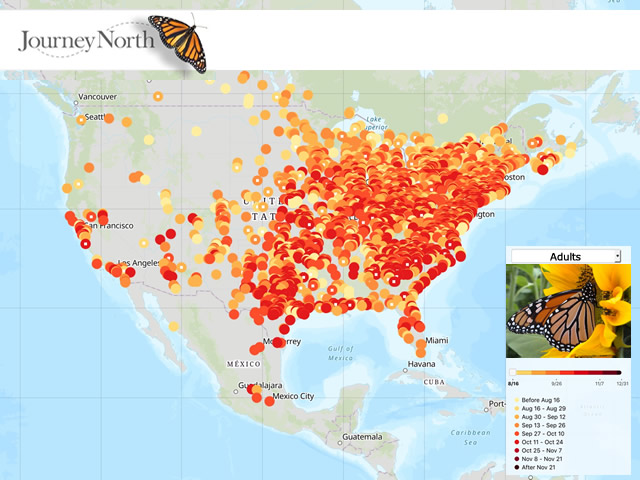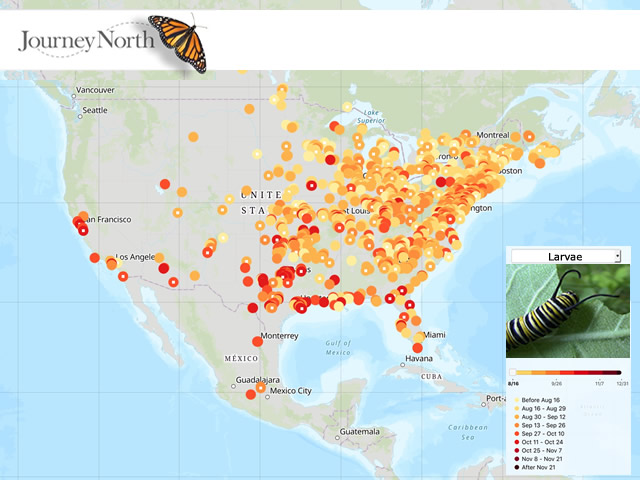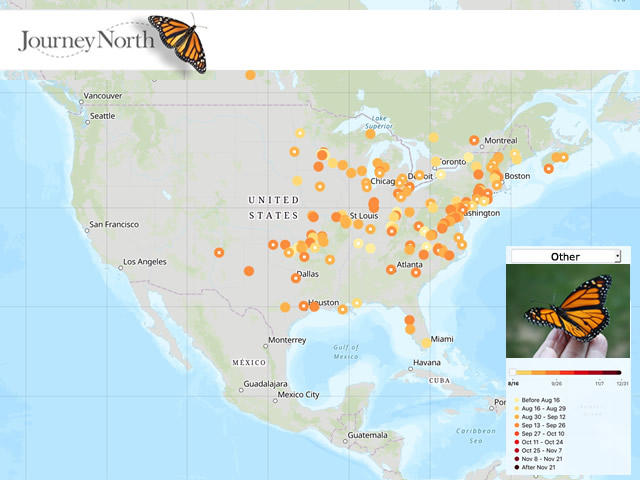Good Roosting Weather
An exciting week for monarch migration with reports of peak activity and overnight roosts along the central flyway.
Eastern Monarch Population
Kansas a Hotspot of Activity
Since last week's news update on September 16, Kansas has become a hotspot for reporting. Peak activity and roosts were widely sighted, and monarch numbers grew throughout the week.
Linda in Walton, KS: "At sunset, monarchs are moving from nectaring in my brother's sunflower field just coming into bloom, and roosting in the hedgerow on the south side of the field for the night. Too many too count - thousands! 73 degrees, 3 mph sw wind. An awesome sight!" (09/18/2020)
Pam in Claflin, KS: "Monarchs were nectaring all day on the goldenrod, favoring it all week over common and Maximillian sunflower. Numbers increased greatly at 5:30 p.m., with a mass exodus toward the tree lines for roosting at about 6:30 p.m. Temp. 75-80 degrees, with light north wind. I only counted in one area; probably many more on down the trail. This has been an amazing migration year at our location, with monarchs increasing in numbers since Monday." (09/17/2020)
Jill in Manhattan, KS: "We expect that there were MANY more monarchs present than were actually seen. Easily another 5,000 butterflies present that were unaccounted for. We're driving the 10-mile loop of the bison road at Konza Prairie Biological Station - moving at 5-10 mph and getting GPS coordinates for every butterfly we see, and then counting the number of GPS spots we record. This was our third pass and set of data. The total number of butterflies has increased each day we've gone out." (09/19/2020)
Sightings of overnight roosts contributed by citizen scientists have revealed that the eastern monarch population follows two distinct flyways as they travel to Mexico: an eastern flyway and a central flyway. Notice that this year’s PEAK and ROOST migration maps are beginning to show the predicted pattern.
Breeding, Eggs and Larvae
In the northern US, reports of late season breeding are still coming in and some Journey North citizen scientists are noticing a difference in timing compared to last year.
Debbe in Clinton Township, MI: "Seen several pairs mating today, in addition to at least 10 at a time all day long. Seems too late for them when last year on this date we had over 1000 in a roost migrating. So far this year only 2 very small roosts." (09/13/2020)
Farther south, more eggs are being discovered and larvae are preparing for the next stage of their life cycle.
Sondra in Horseshoe Bay, TX: "Discovered 6 monarch eggs on a Zizote milkweed in a pot on my deck. Did not see the monarch lay the eggs. Have never had eggs this late in the season." (09/19/2020)
Amy Newburgh, IN: "I found this caterpillar in the J form this morning on my birdbaths base. It always amazes me how far they crawl. This the second caterpillar that has used this location. Monarch Waystation 10,666." (09/23/2020)
Fueling Up and Taking Off
Shirley in Asheville, NC: "This Monarch looked so fresh and perfect. I'm guessing it was one that has been through all the life stages on our property. On the Zinnias briefly then it was gone. (09/19/2020)
Western Monarch Population
Monarchs on the move!
Monarch sightings in the West continue and citizen scientists are reporting monarchs throughout the West this week except the state of Washington. Meanwhile Southern California continues to see good numbers of monarchs as they have the entire summer.
Read more of Gail Morris' Western Monarch Fall Report #4...
Watch the Wind and Keep Reporting
Wind affects when and where monarchs can fly. Use this live map to predict good flying conditions for monarchs in your area.
Your observations add to our collective understanding of monarch migration. Keep reporting and thanks for all you do on behalf of monarch migration tracking!
Fall Monarch Migration 2020
Please report all monarchs you see: Adults, Eggs & Larvae, Overnight Roosts, Peak Migration Events


